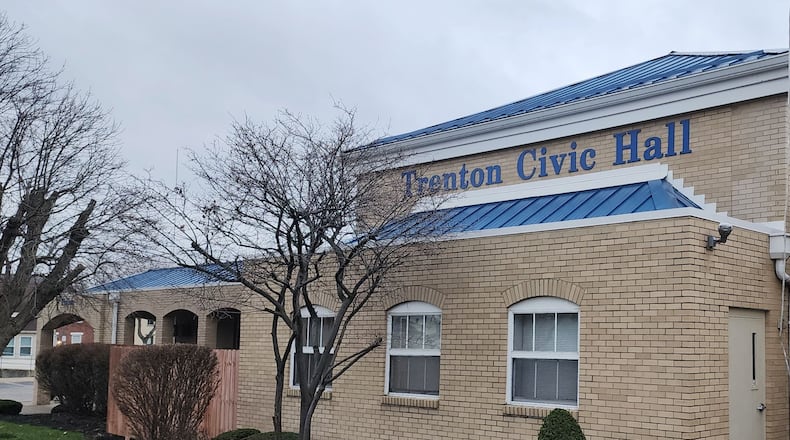Trenton City Manager Marcos Nichols said an opt-out community aggregation program would introduce another energy option for residents and businesses who currently default to Duke.
“The thought is that it is simply an option that the city can move forward with if approved by the voters,” Nichols said.
“Basically, if you’re in the City of Trenton, you have an agreement with Duke and that is your provider, or there are other providers out there that can source the market for you and try and give you a better rate than what Duke provides, and that’s done on a one-to-one basis,” Nichols explained. “The community aggregation program would be a program that basically, instead of on a one-to-one basis, it groups all the residents in Trenton and says, “What (rate) can we get for this number of electric users?”
Matt Schilling, a spokesperson for the Public Utilities Commission of Ohio [PUCO], described community energy aggregators as a way for a block of customers to shop the market and find the lowest rate — but aggregators are not necessarily going to be cheaper than standard providers. Schilling said aggregators are able to shop the market more frequently than standard providers like Duke Energy can, which means their prices are generally more responsive to market conditions.
Nichols said the program would come at no cost to the city and with no fees to customers who stay in the program — the cost of Energy Alliance’s services will be included in the rate.
PUCO mandates that all opt-out aggregation services be approved by the voters. Nichols said the vote is the first step toward getting a program together.
“If it’s voted on and gets voted down, then we just continue status quo,” Nichols said, “but if it gets voted on and approved, the second step would be working with the state and the Public Utilities Commission (of Ohio) to develop a government aggregation program (with Energy Alliances).”
Energy Alliances first pitched their community aggregation program during the Feb. 16 City Council meeting. Council unanimously voted in favor of putting the initiative on the ballot this November.
About the Author

